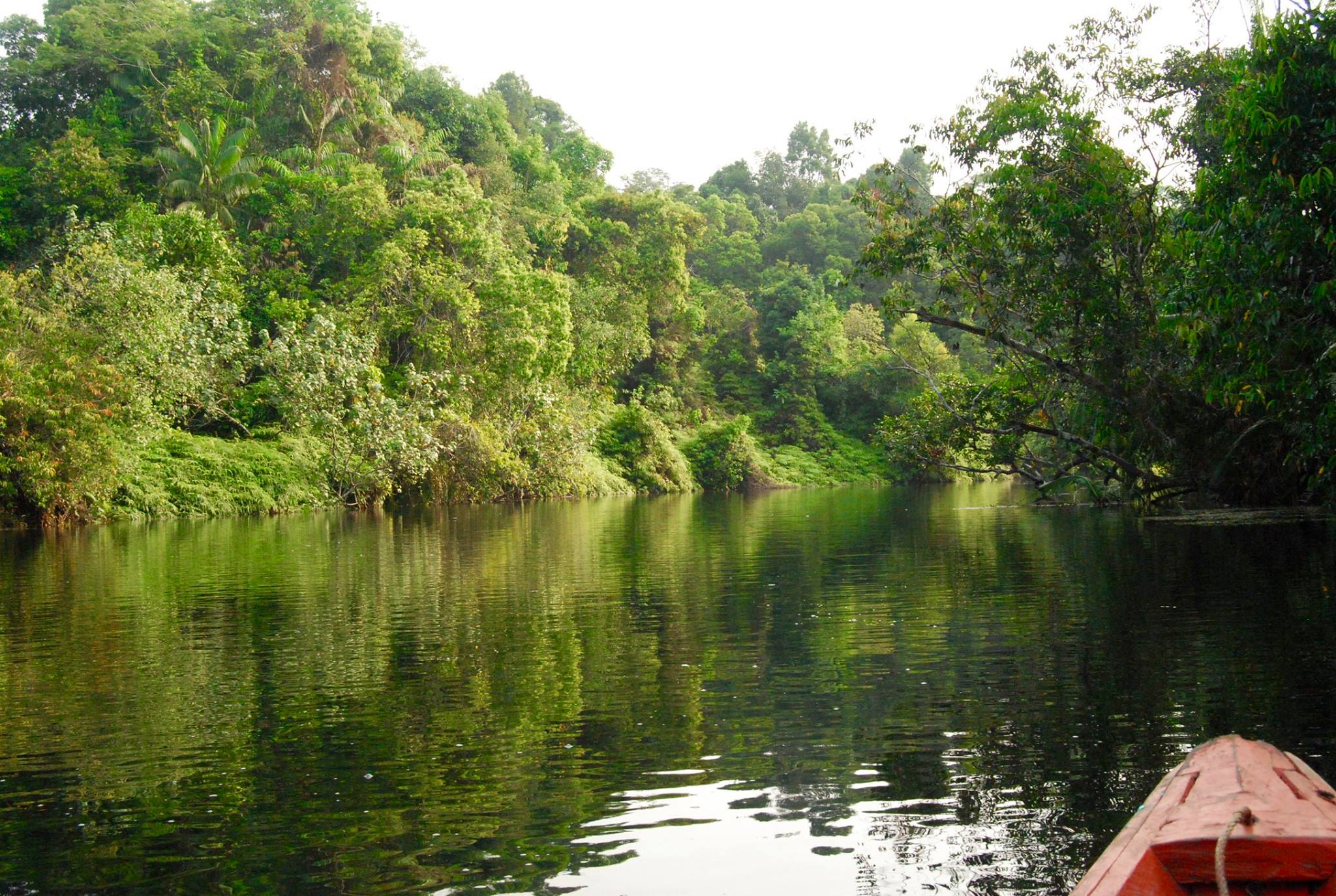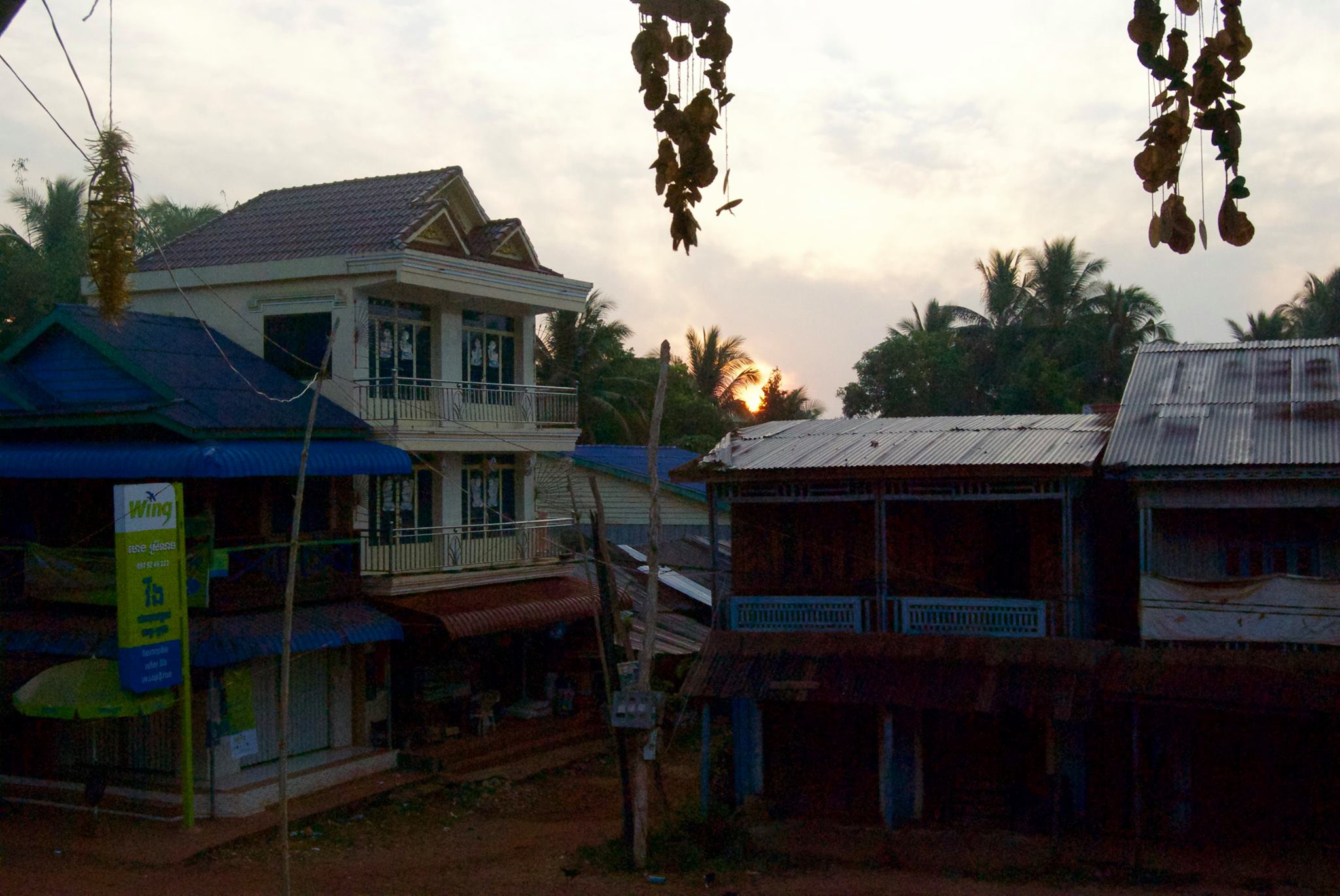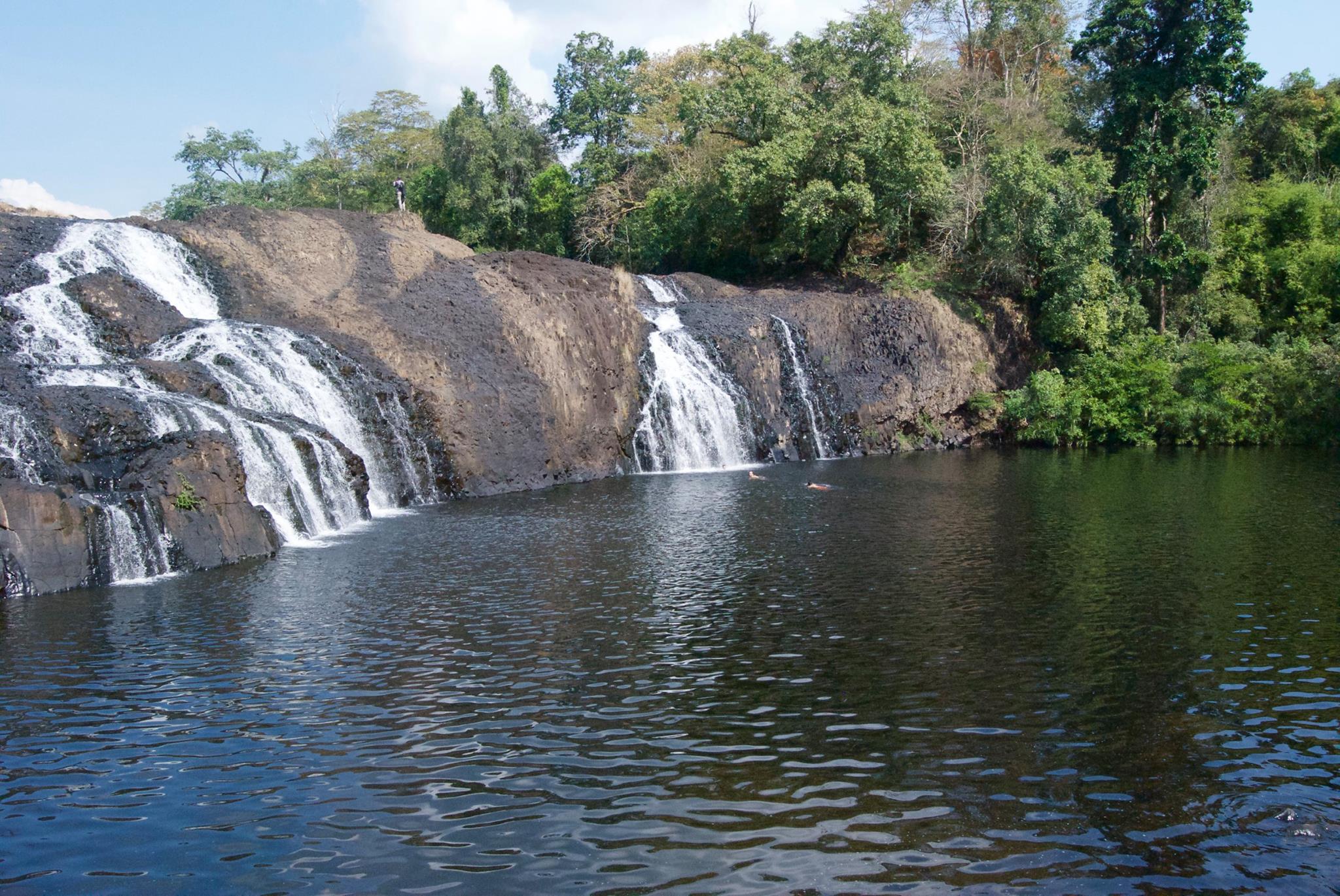 Alex Gonzalez Davidson is the Spanish activist who created the Cambodian NGO Mother Nature. The organization’s main goal is the defense of the environment in the southern province of Koh Kong, a region seriously affected by deforestation and illegal hunting. These “jobs” have been for many years the main source of income for impoverished local people. Now something is changing in better thanks to NGOs who fight against the exploitation of natural resources and the construction of useless and dangerous buildings. They also propose new ways for a sustainable development of the area.
Alex Gonzalez Davidson is the Spanish activist who created the Cambodian NGO Mother Nature. The organization’s main goal is the defense of the environment in the southern province of Koh Kong, a region seriously affected by deforestation and illegal hunting. These “jobs” have been for many years the main source of income for impoverished local people. Now something is changing in better thanks to NGOs who fight against the exploitation of natural resources and the construction of useless and dangerous buildings. They also propose new ways for a sustainable development of the area.
We found Alex’ story very romantic, like a modern Don Quixote of La Mancha. This Spaniard, put on trial by the Cambodian government for his opposition to the building of a dam that would have flooded and destroyed the Areng valley, is a real Altroparlante and for this reason we’re proud to publish this interview. Good luck Alex. Good luck Koh Kong.
Mother Nature is actively engaged in the battle against the construction of a dangerous dam in the Areng Valley and against the exploitation of natural resources in Koh Kong province; do you also have an alternative project for the economic and social development of that area?
Yes we do - we have started a social enterprise called The Wild KK Project which takes visitors, both Cambodians and foreigners, to the areas we are trying to save from destruction. However, this project is on a small scale and thus the impact it has for now (at least economically) is low. But then again, the alternative economic and social development of these areas is primarily the responsibility of the government, not citizens.
Both the Areng valley and the coastal communities we work with have been totally neglected by the state, while at the same time large scale development projects going on in and around their communities generate hundreds of millions of dollars for a few private companies and corrupt government officials in power. This happens while these areas do not even have a simple health clinics provided by the state. This is what is truly scandalous.
 The building of the Areng dam has been suspended until the end of the current government’s term; do you think the building company might definitively abandon this project?
The building of the Areng dam has been suspended until the end of the current government’s term; do you think the building company might definitively abandon this project?
Recently, the government has said that no more dams will be built until 2020 at the earliest. There is also the fact that the Areng valley has now touched the hearts of millions of Cambodians, it is receiving more and more tourists, and local people have much more leverage now than they had a few years back. I think the dam company is not stupid and knows this, so most likely they will take a step back from this project and try to go ahead with different large scale 'development' projects in Cambodia.
I think land property is a key issue in Cambodia, as well as in other parts of the world. Who are the land owners in Koh Kong province?
The coastal communities affected by large scale sand mining live in areas which are state property, so the land officially belongs to the state. As these communities have no land titles, they can be easily thrown off their land by a large scale development project, as seen in many other areas of Cambodia. The same goes for the indigenous people of the Areng Valley; they are living in their ancestral lands, and work on the same plantations and rice fields as their ancestors did hundreds of years before them. However, they hold no land titles and so the state could confiscate their land and sell it to the highest-bidding company or investor. That is illegal, but then the crime is committed by the state, or at least by those representing the state, so of course that presents massive obstacles.
What's the reaction of l ocal people and political authorities to your battle? Do they support it?
ocal people and political authorities to your battle? Do they support it?
There is a lot of fear and misinformation in these communities, much of it instilled by state officials. Some villagers will believe the lies that the government officials and their thuggish partners from the private sector tell them,
while others (a majority) will be too afraid to contradict the 'official party line'. There is also the problem that as these are very remote communities, and very few civil rights activists are able ever to go and share information relevant to their ongoing struggles. This effectively means that there are mixed reactions to the presence of our activists in the communities which we work with: some villagers are brave & passionate and more than happy to join us, some oppose us, and others are too afraid to join us.
The vast majority of the local authorities in these communities receive orders to make the work of the activists and those opposing the destruction of the environment impossible, so the support we receive from them tends to be zero.
What's your main source of inspiration?
Those who, in the last 20 years, have decided to sacrifice their lives and their happiness for the benefit of the Cambodian people and the Cambodian nation. Above all, the 3 Mother Nature activists who have been in jail (kidnapped by the state) for more than nine months now.
Why did you decide to start this experience with Mother Nature and how did you arrive in Cambodia?
I arrived in Cambodia as a tourist, then I stayed as an English teacher, attracted chiefly because of how interesting I found the Cambodian people. We only created our group after knowing that a few well connected and powerful individuals were going to use several state organs (ministries, police, local authorities, etc.) to go ahead with a totally senseless and destructive hydro-dam in the stunningly beautiful valley of Areng. I had seen too much destruction in other areas just to close my eyes and pretend that everything was going to be fine. Our group eventually then expanded our aims mainly because Cambodians are fed up with the level of destruction of nature they continue to see, and shared our dream of saving what is left of the nation's natural resources from destruction.
What's your idea a bout the differences in the defense of the environment in Europe and Cambodia?
bout the differences in the defense of the environment in Europe and Cambodia?
I am not sure how the situation in Europe is regarding environmental protection, as I left many years ago and was never involved in that while I lived there as a young boy. But I suppose the level of disconnection between nature and society is greater there than it is here in Cambodia. Cambodian culture, livelihoods and nature are much more linked to nature, and the people seem to be much more eager to defend it as they understand what benefits nature gives us all.
Do you think Koh Kong and the Areng valley could themselves be a source of inspiration for ecological organizations in the West?
Let's hope so. We did achieve an incredible victory, and many people made many sacrifices for that to happen, so seeing our strategies implemented by others would be fantastic. This, by the way, is already happening in Cambodia with other groups.
CLICCA QUI PER LA VERSIONE ITALIANA ---> INTERVISTA AD ALEX GONZALEZ DAVIDSON
